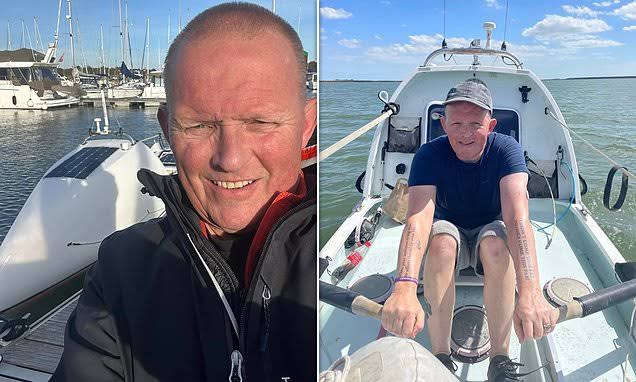A British rower has been found dead in his boat at sea while he was on a 3,000-mile challenge to cross the Atlantic.
Michael Holt, 54, died 700 miles into the challenge to raise money for the charity Mind by crossing the ocean by himself – four weeks after setting off in Gran Canaria.
After two years of training, he set off on January 27 for the 2942 mile journey which was expected to take anywhere between 40 to 110 days to row across.

Prior to His Death
Mr Holt was posting updates throughout the journey – and told friends he was suffering with sea sickness when he began to feel poorly.
The father-of-one was en route from Gran Canaria to Barbados and had already battled strong winds, losing an oar, and a shark attacking his rudder before he fell ill.

Shortly after telling them he felt ill, his family said they had lost contact with him and alerted local rescue services.
Mr Holt, a type 1 diabetic, was found dead in his cabin two days later.
Victim Impact Statement
His brother David said: ‘Last night the fishing vessel Noruego accepted a tasking from Cape Verde Joint Rescue Coordination Centre and made directly for Michael’s coordinates. Very sadly, upon arrival, Michael was found dead inside his cabin.
‘Of course this was not the ultimate conclusion we were looking for, but I am somewhat comforted knowing he died doing something he absolutely wanted to do with a passion and managed to row in excess of 700 miles in the process.

‘An achievement in itself,’ he added in the update on Mr Holt’s Instagram.
‘This is a huge shock to myself, his wife Lynne and daughter Scarlett and my parents, not to mention wider family and friends.
‘Many thanks for the kind words and wishes that you have already sent us during the past few days. They mean a great deal to all the family.’
Mr Holt, originally from Porthmadog, North Wales, had been living in the Wirral and was raising money for Mind and Liverpool Charity and Voluntary Services. He attempted the challenge after two years of training.
Just days before the tragedy he lost an oar and cut his hand when he was ‘nearly knocked overboard’ by a strong wave.
His family said he was ‘well prepared’ and had a spare oar in case of such emergencies and had medical supplies to avoid infections.












